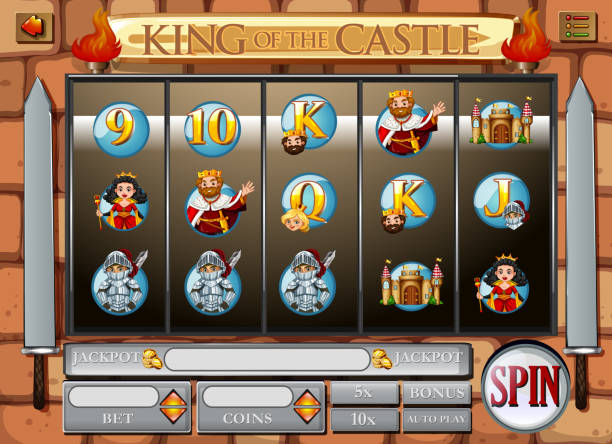The Evolution of Gaming: A Look at How Video Games Have Changed Over Time
Video games are an incredibly popular form of entertainment that have captured the attention of millions of people around the world. From the earliest days of simple, pixelated games to the immersive, high-definition experiences of today, video games have come a long way.
In this blog post, we will take a look at how video games have evolved over time, exploring the significant changes and developments that have occurred in the industry. We will examine the key milestones in the history of video games, from the early days of the arcade to the rise of home consoles, PC gaming, and modern gaming.
Furthermore, we will delve into the topic of gambling in video games, which has gained a lot of attention and controversy in recent years. Gambling has become a prevalent feature in modern video games, and it has sparked debates about the ethical implications of including it in game design. We will discuss the rise of gambling in video games, how it works, and examples of popular gambling video games.
Overall, this blog post aims to provide a comprehensive overview of the evolution of gaming and the current trends and controversies within the industry. By the end of this article, readers will gain a deeper understanding of the history of video games and the potential future of the medium.
The Early Days
The early days of video games were a time of experimentation and innovation, as game developers sought to create new and exciting ways for people to interact with technology. The first video game was created in 1958 by physicist William Higinbotham, who programmed a simple tennis game as a demonstration for visitors to the Brookhaven National Laboratory.
However, it wasn’t until the 1970s that video games really took off, with the rise of arcades and the creation of iconic games like Space Invaders, Pac-Man, and Donkey Kong. These games captured the imagination of a generation, offering a new form of entertainment that was both challenging and addictive, with many people competing for world records.
Arcades became incredibly popular, attracting hordes of teenagers who spent countless hours playing games and competing with each other for high scores. These games were simple, with minimal graphics and sound effects, but they were incredibly engaging and created a sense of community among gamers.
The early days of video games laid the foundation for the industry we know today, even sparking innovation in fields outside of gaming and it is safe to say, innovations in the gaming industry are pushing the tech industry forward. Innovations like joystick controllers, high scores, and multiplayer games paving the way for future developments. While the games themselves may seem primitive by today’s standards, they were a crucial step in the evolution of gaming, and they set the stage for the explosion of creativity and innovation that was yet to come.
The Home Console Era
The home console era not only brought gaming into the living room, but it also marked the rise of gambling video games. While gambling had always been a part of video games, it wasn’t until the home console era that it became more prevalent.
One of the first gambling video games was Poker for the Atari 2600, released in 1978. The game was a simple simulation of poker, allowing players to bet virtual chips and play against the computer. It was a basic game, but it laid the foundation for future gambling video games.
As home consoles became more advanced, so did the gambling video games. The NES saw the release of games like Casino Kid, a role-playing game that revolved around gambling, and Vegas Dream, a game that simulated a trip to Las Vegas.
In the 1990s, with the rise of the internet, online gambling games started to emerge. One of the earliest examples of this was the game Red Dog Poker, which was released by Interplay in 1996. It was a multiplayer game that allowed players to bet real money and win real prizes, marking a significant shift in the industry.
In recent years, gambling video games have become more prevalent than ever before, with games like Grand Theft Auto V featuring a fully-functional casino. These games allow players to gamble virtual currency and win virtual prizes, blurring the lines between video games and gambling.
The rise of gambling video games has sparked debate about the ethical implications of including gambling in game design. While some argue that it is harmless entertainment, others believe that it could lead to addiction and financial ruin for vulnerable players.
The Rise of PC Gaming
The rise of PC gaming in the 1990s marked a significant milestone in the evolution of video games, as it allowed players to experience games in a new way. PC gaming introduced advanced graphics, improved sound quality, and more complex gameplay, which was made possible by the power of personal computers.
One of the most revolutionary aspects of PC gaming was the rise of online gaming, which allowed players to compete against each other over the internet. This was a game-changer for the gambling industry, as it allowed for the creation of online gambling games.
In the early days of online gambling, players had to download software to their computer to access the games. However, with the rise of web browsers like Netscape and Internet Explorer, online gambling became even more accessible. Players could simply click a link to access the games, making it easier than ever to gamble from home.
The online gambling industry exploded in the 2000s, with companies like PartyPoker and PokerStars becoming some of the biggest names in the industry. These companies offered a variety of online gambling games, including poker, blackjack, and roulette, and they allowed players to bet real money and win real prizes.
However, online gambling games have also faced controversy and legal challenges. Some countries have banned online gambling, while others have strict regulations in place to prevent it. The industry has also faced criticism for being a potential source of addiction and for exploiting vulnerable players.
Overall, the rise of PC gaming marked a significant period in the evolution of video games, and it allowed for the creation of online gambling games. While the industry has faced its share of challenges, it remains a popular form of entertainment for millions of players around the world. If you are interested in trying out online gambling games, click here to see some of the best slots sites. be sure to do your research and only gamble responsibly.
The Future of Gaming
As technology continues to evolve, so does the gaming industry. The future of gaming is full of possibilities, with advancements in areas like virtual and augmented reality, cloud gaming, and artificial intelligence.
One of the most exciting areas of development is virtual and augmented reality. These technologies offer new ways for players to experience games, by immersing them in virtual worlds and creating new ways to interact with game environments. Some of the most successful virtual reality games include Beat Saber and Half-Life: Alyx.
Another area of development is cloud gaming. This technology allows players to stream games from remote servers, removing the need for expensive hardware and enabling gaming on a wider range of devices. Cloud gaming services like Google Stadia and Microsoft’s xCloud are already available, and more companies are expected to enter the market in the coming years.
Artificial intelligence is also playing an increasingly important role in gaming. AI-powered games can create more realistic environments and more challenging opponents, and they can adapt to players’ individual styles of play. One example of this is the game DeepMind, which uses AI to learn and improve at the game Go.
As for the future of gambling in gaming, it remains a controversial topic. While some companies have embraced gambling elements in their games, others have faced criticism for promoting addictive behaviors and exploiting vulnerable players. It is likely that governments around the world will continue to regulate gambling in games, which could impact the future of the industry.
Conclusion
The evolution of gaming has been a remarkable journey, with new technologies and innovations continually shaping the industry. From the earliest arcade games to the latest virtual reality experiences, video games have become an integral part of modern culture, offering new ways to experience entertainment, connect with others, and even learn.
While the industry has faced its share of controversies and challenges, including the rise of gambling in video games, it continues to thrive and innovate. As technology continues to advance, the future of gaming looks brighter than ever, with new opportunities for immersive experiences, innovative gameplay, and creative expression.
As gamers, it is important to recognize the potential impact of video games on our lives and to approach gaming with a sense of responsibility and mindfulness. By staying informed about the latest developments in the industry and by supporting ethical and responsible gaming practices, we can ensure that gaming continues to be a positive force in the world.
In conclusion, the evolution of gaming is a testament to the power of human creativity and innovation. Whether we are playing for fun or for a chance to win big, gaming remains an exciting and engaging form of entertainment that will continue to shape our world for years to come.













